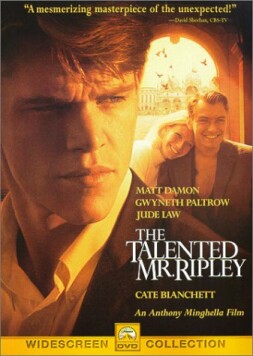What Planet Are You From?
What Planet Are You From? is a charming progressive fable about the female domestication of wild masculinity that will appeal on different levels to those, like its director Mike Nichols, who wish that it might be so and to those who fear that it is so. For everybody else, there is the pleasure of the superior quality jokes crafted by Mr Nichols from a script written by several hands, including that of Gary Shandling, the star. Shandling plays an emissary from a planet inhabited entirely by men, who reproduce themselves by cloning. Because they do not reproduce sexually, their reproductive organs have disappeared. Going through an almost routine pattern of conquest of other planets, they decide, for reasons that are never quite clear, that in spite of a huge technological superiority they must conquer earth by impregnating earthling females with their alien babies. And to do this they must learn how to seduce women, whom they know only from holograms that seem to have been manufactured out of 1950s-era women’s magazines.
Predictably, their seductive techniques are comically ham-handed. “You have very fashionable footwear,” says Shandling’s character to the hologram: “May I insert my penis into you?” But his superiors are so impressed with his technique that his hitherto numerically identified character is supplied with an artificial penis and becomes “Harold Anderson” from Seattle, who is installed in a banking job in Phoenix. Most of the jokes come from Harold’s tutelage in the more conventional arts of seduction by Perry (Greg Kinnear), his philandering workmate — whose wife, played by the excellent Linda Fiorentino, wears a sign saying “I am not a victim” but otherwise has too little to do — and his attempted explanations of human female behavior to his superior from the home planet, Graydon (Ben Kingsley). There is also a less successful sub-plot involving an FAA inspector played by John Goodman who becomes obsessed by the hunt for Shandling’s alien.
But Annette Bening does a terrific job as Susan Hart, the woman he meets at an AA meeting (Perry has said this is a good place to pick up chicks) and determines to impregnate. She has been around and is determined to clean up her life by living chastely as well as soberly. Naturally, she is wary about Harold’s advances. “All men are the same,” she tells him over an intimate dinner. “They’ll say anything to get into your pants.”
“That’s terrible,” he says, his people-skills having improved somewhat. And then: “What would that be?”
Susan insists that there is to be no sex without marriage. So what’s the problem, thinks Harold, and promptly asks her to marry him. Perry is horrified: “You’re marrying a woman you’ve never had sex with? Are you insane? Didn’t you see The Crying Game?”
Of course the surprise in this case is in the trousers of horny Harold, but Susan apparently suspects nothing even though his artificial penis emits a loud hum whenever he is aroused. Once they are married and she is pregnant, however, a different kind of trouble comes upon the marriage. “Harold” has now done his bit for the home planet and loses interest in Susan. But his training has not prepared him for her demands for “communication” and her passive-aggressive assault on him when he doesn’t provide it. “When we met, she liked it that I didn’t talk about myself. Now she wants to know everything I’m feeling,” he complains to Graydon, who is as baffled as he. When she destroys the remote as a protest against his TV watching, he calmly gets up to go out and buy another. Bursting into tears she cries, “Oh, go buy your precious remote!”
“OK. Bye.”
This moment is later re-enacted back on the home planet, this time with Susan in hologram form and “Harold” as the instructor of the others who will follow him to Earth. “So I go?” says a hopeful pupil.
“No, you don’t go,” explains the now clued-up Harold. “There’s another layer here.” And he proceeds to elaborate on the alien but weirdly seductive feminine mind that he has now learned more about. Clearly, the would-be conquerors have been conquered.
It is interesting that this movie bears almost no relation to its advertising. On the newspaper ads I saw before it opened, the plot was summarized as follows: “To save his planet, an alien must find a woman on Earth to have his baby. There’s just one problem” Beneath these words there is a half-tone of a faceless male mid-section with a pair of hands holding a wilted tulip. The gag is clearly meant to suggest that the “problem” is impotence, but in the movie itself this is not the case. On the contrary, Gary Shandling’s wedding tackle, supplied him by the most advanced technology his planet has to offer, is in spectacularly good working order. Moreover, his purpose in attempting to impregnate Annette Bening is not “to save his planet,” which is in excellent shape, but to conquer this one with the help of a fifth column made up of celestial half-breeds.
So what? you might ask. Movie advertising is not anybody’s idea of a place to look for accurate information. Even the fact that such a false summary cannot be a matter of inadvertence or sloppiness, so completely wrong is it, but must be a deliberate distortion seems a matter of little moment. Yet I wonder if the distortion is a sly way of pointing beyond the movie itself to what it portends, namely the final triumph of the feminine over the masculine as the woman’s planet (our own, dear reader), technologically backward though it is, is utterly victorious over the men’s planet, several solar systems away, and without firing a shot. The “just one problem” is not physical impotence but a moral impotence which is completely helpless before female demands for male feminization. Mike Nichols, it is reasonable to suppose, sees this transformation as matter only for gentle humor, but the creator of that ad had a better idea of what the film is really about. “To save his (masculine) planet,” its emissary must conquer the feminine planet or be conquered by it. The wilted tulip is just a symbolic representation of how this death struggle comes out.
Discover more from James Bowman
Subscribe to get the latest posts to your email.







